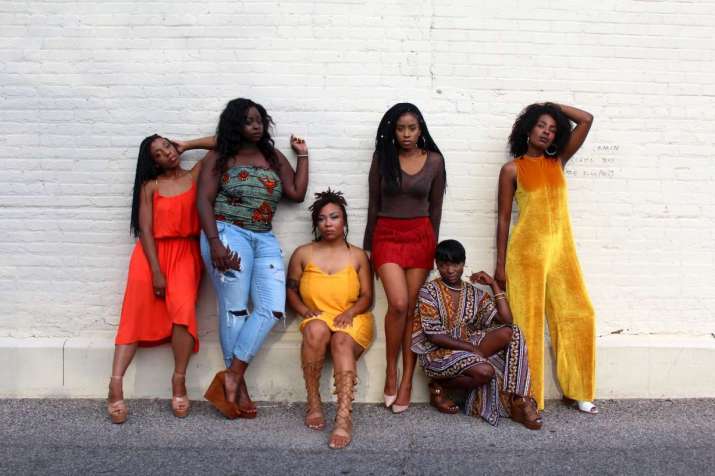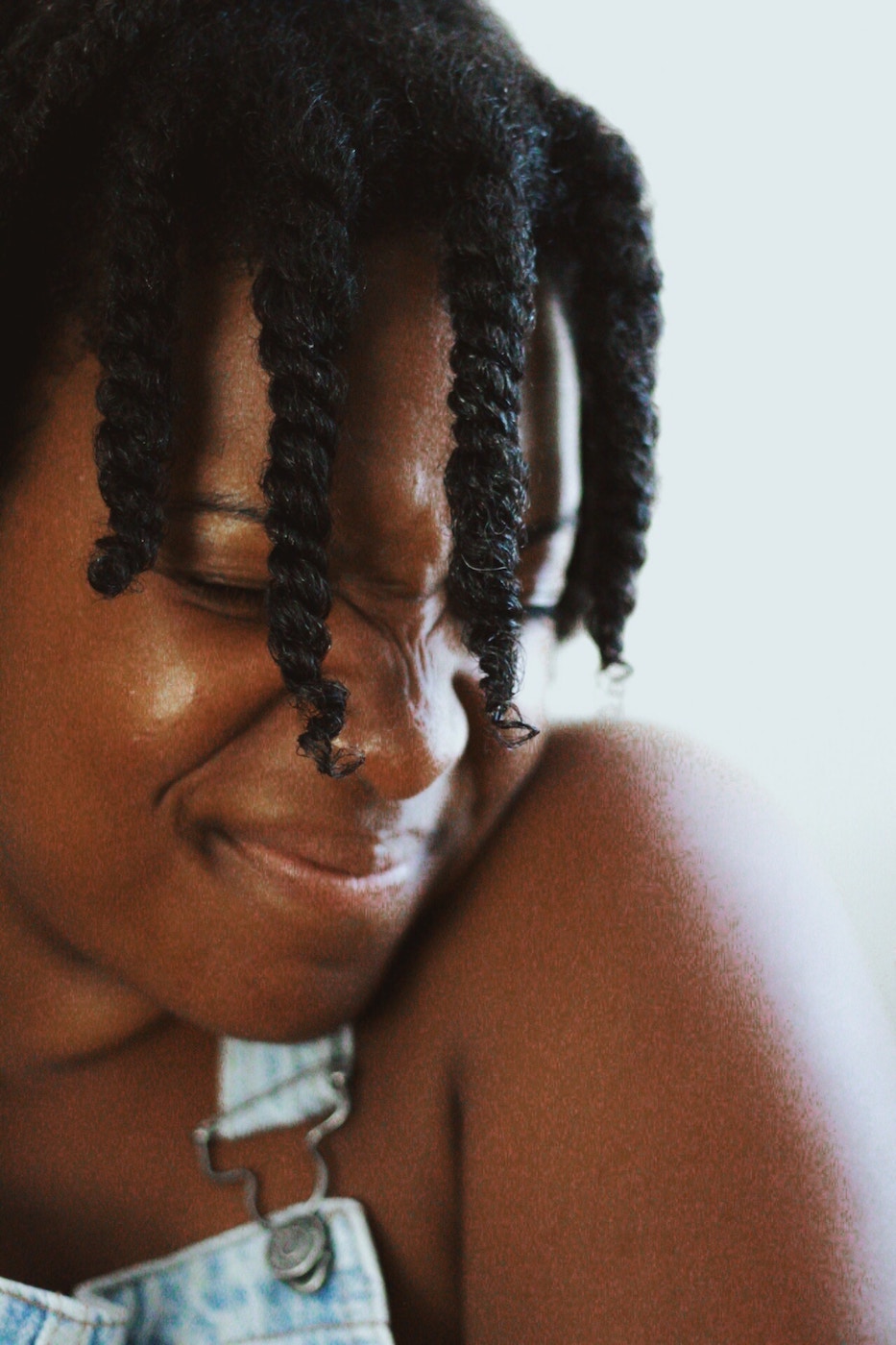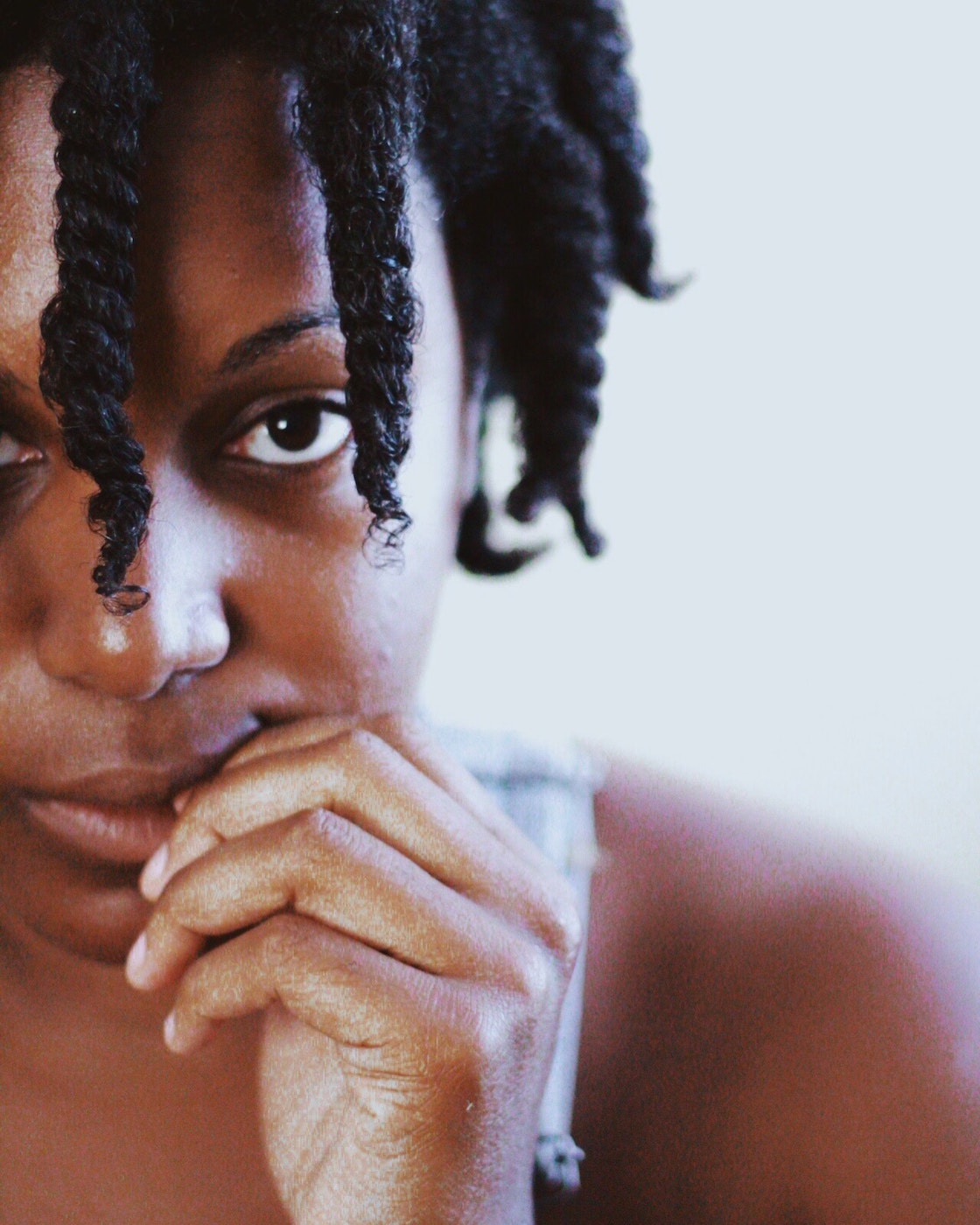FEATURES|COLUMNS|Everyday Dharma (inactive)
The Wisdom of Grief and Anxiety – Building a Life of Meaning Outside of the Social Media Trap
 Photo by Clarke Sanders
Photo by Clarke SandersI hate social media.
And I feel sorry for future generations who will have to rely on social media entirely, embracing the algorithms, the politics, and the games of social approval in order to build enough credibility to survive.
Even now, organizations want to see some form of “social proof” before granting employment opportunities to potential candidates. An individual’s worth is no longer measured by their skillset or what experience they bring to the table. No, we must be able to flatten ourselves for public consumption, willing to manipulate how others perceive us in order to get ahead.
Recent studies have shown that younger generations in the US, millennials in particular, are overwhelmingly anxious. Older generations scrutinize us, baffled and confused: we know nothing of famine, of war, of suffering, and of (concrete) loss, so what’s the problem?
And, it’s true. While many of us are drowning in student debt, struggling to pay rent and keep up with inflation, the present moment doesn’t pose an immediate danger. On the surface, all of our anxieties seem imagined and obscure, appearing imminently like a phantom ticking in the form of FOMO (fear of missing out), anxiety, depression, and straight-up existential dread. It grows more agonizing with every social media post unliked, every image swiped left, every side hustle failed, and each moment spent surrounded by people digitally while sitting alone on our couch, subconsciously mourning the loss of meaning and connection.
But what is the root of this epidemic? And why is it happening now?
America was built on the premise of constant expansion, and capitalism profits off of our fear. We are constantly being sold to based on our fears and unmet intrinsic needs, from self-care apps, to beauty and “wellness.” Don’t get me wrong—I am a strong proponent for self-care and therapy. But instead of adjusting expectations to decrease suffering, companies monetize our suffering (e.g., mindfulness) by selling us things we “need” for wholeness and well-being.

Photo by Leighann Blackwood
If you’re a first-generation immigrant, then your parents might have moved to the US because they were attracted to the promise of the American Dream. America is a place where anyone can be anything they aspire to be, as long as they are willing to pull themselves up by their bootstraps and work hard. Your parents worked hard to give you the opportunity to truly “make it.” They kept you alive, relatively healthy and well-fed. Now you’ve graduated college and the future is up to you—anything is possible.
On the other hand, if you are African American then perhaps your relationship is more complicated, as you are accustomed to living in proximity to a dream that you can scarcely touch, while your own labor, emotions, and body simply become fertilizer for the American Dream.
When people hear the term “grief,” they frequently think about concrete loss and trauma—a breakup, a departure, a death. This makes sense: Webster defines grief as a “deep and poignant distress caused by or as if by bereavement,” a definition which emphasizes the causal connection between a finite event and a seemingly infinite feeling. Something must have already happened to elicit grief, and that event must have taken place in the past. Grief is bigger than what has already happened to us. Grief is connected to what we fear, what we love, and what we aspire toward.
Many of us grew up amid a technological boom in which we witnessed scientific advancements that exceeded our imagination. Our parents groomed us for greatness, and now we’re all waiting to see the outcome of the investments they made. We are driven by the demands to be somebody, anybody, so we scream louder into the internet void until we become more obscure, each of us chasing the same things: validation, connection, power, money, respect, and recognition. For many of us, our expectations of where we should be are so far from the reality of where we are that we are constantly playing catch-up with our imagination, exhausting ourselves by chasing an illusion, anxiously pursuing this dream.
We are competing for love on apps where we have five seconds to make an impression before someone swipes left. We are competing for approval and validation in the isolation of the internet. We are competing for income in a market that monetizes our future. We are competing for time.
No one has ever taught us how to deal with our grief and our sense of powerlessness—possibly because no one has known how to name it. We just feel stuck. So we head back to Instagram or Twitter to post pictures with captions that will convince our followers that we are, in fact, the person we aspire to be. In the process, we notice pictures of other people who are supposedly “living the life,” accomplishing all the things we dream of. We feel like failures. Then we sit silently in our own grief and shame, mourning a death without a body, a grief without a name.

Photo by Leighann Blackwood
Millennials face an increased existential awareness amplified by the realities of climate change and economic disparity, all of which legitimately impact our access to tomorrow. What’s more, we feel isolated. We fear the person hiding behind the hashtag or filter, yet we feel powerless to disengage from the social media game. We feel pressured to maintain a specific image and story, especially if our income is tied to an established brand or following. So we hold on to this façade of not just living, but thriving, because the façade is intimately tied to our ability to survive in an increasingly competitive and globalized world. Anytime something is tied to our survival, it is intrinsically tied to grief and fear of (future) loss.
Some people turn to themselves to fix it, using manifestation and vision boards. They focus on simply changing their “mindset” without truly knowing what the mind fears. They buy into the delusion that the future they want is totally of their making. Meanwhile, there are people all around the world who aspire toward life, toward peace, and toward freedom—for themselves and their loved ones—only to watch their dreams fall down in mid-flight.
But it’s not all doom and gloom.
Grief is a powerful teacher. It is a tool that allows us to use our lives wisely, to build a life of meaning in this moment, because none of us really have that much time. Moving past a place of being driven by our grief as opposed to being informed by it takes courage. It takes a commitment to being deeply and uncomfortably aware so that we can be guided by what matters most.
Breeshia Wade will go on hiatus from writing her column from this month. Everyday Dharma will return later this year.
See more
This isn’t supposed to happen (Medical News Today)
Related features from Buddhistdoor Global
Shifting Trust in the Age of Fakery
Buddhistdoor View: “Hyper-mindfulness”—An Urgent Buddhist Response to the Age of Social Media
The Unskillful Use of Social Media
Right Speech in the Internet Age: If You Have Nothing Nice to Say, Say Nothing at All














